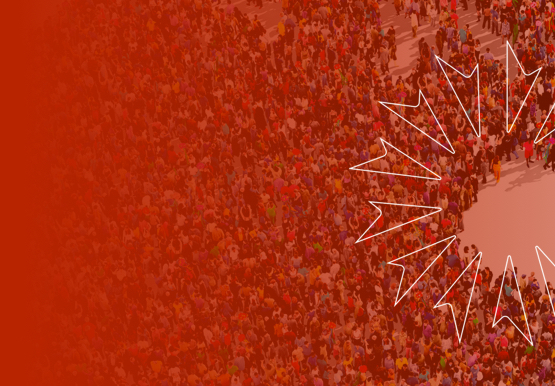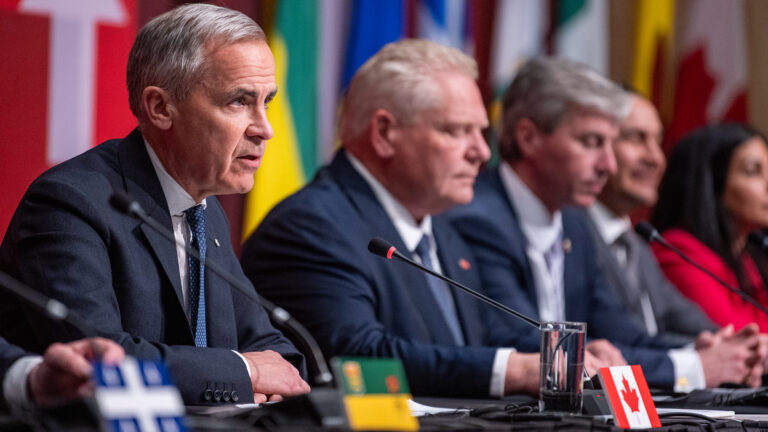A Less Resentful Federation? Findings from the 2025 Provincial Resentment Index
The fourth edition of the Provincial Resentment Index shows that, on average, Canadians feel slightly less aggrieved about their province’s place in the federation than at any point since the index was introduced in 2022. However, the overall decline is modest, and important pockets of discontent remain — notably in the Prairies — especially around Quebec’s contribution to the country.
Much has changed since the first iteration of the Provincial Resentment Index in 2022. The threat to Canadian independence coming from US President Donald Trump and the tariffs imposed on Canada seem to have created a new sense of urgency among provinces and the federal government to work more closely together. More importantly however, this is the first time the index is compiled without Justin Trudeau as prime minister. The Federal government under Mark Carney, though still Liberal, has been marked by an important change in tone and policy.
At the same time, in Quebec, Premier François Legault now faces a very dissatisfied electorate, and the Parti Québécois likely would form the next government if elections were held today. In Alberta, Premier Danielle Smith has struck a new consultative process – the Alberta Next Panel — and a referendum, this time about separation, might be in the works. These developments seemly point to more resentment, at least among residents of those two provinces, over their place in the federation.
The temperature is down (but only slightly)
Figure 1 shows the Canadian average over the four years of the index. After a slight rise from 2022 to 2024, the national average dipped in 2025. However, the change remains small. On the full index scale — from -6 (least resentful) to +6 (most resentful) — the decline is barely perceptible.
Still, given the context above, the small drop — or the fact that resentment did not continue to rise — should be noted. The index has shown remarkable stability over four years, suggesting that provincial resentment is not especially reactive to short-term political events — even a change in prime minister. The fact that resentment is sticky and doesn’t swing wildly year over year points to a key takeaway: some level of grievance about one’s province’s place in Canada is a structural feature of our federation.
What matters, then, is not whether resentment exists, but where it is concentrated and how it manifests itself.
Four years of provincial resentment: down almost everywhere.
The only provinces where index scores are not down from last year are British Columbia (stable) and Newfoundland and Labrador (up). Saskatchewan and Alberta, whose premiers have perhaps been the most vocal about their dissatisfaction with how their provinces are treated in the federation, are both down. In both cases, they have the lowest average on the index since the first iteration in 2022 (but only barely in Alberta). With the decrease in resentment in Alberta and Saskatchewan and the increase in Newfoundland and Labrador, Canada’s easternmost province is now the most resentful in the country.
Patterns of resentment vary greatly between provinces
Provincial averages can conceal variation within provinces: there are many configurations of resentment within a province that can arrive at a similar average score. To better illustrate how resentment manifest itself, Figure 3 shows the distribution of resentment scores in each province for 2025.
As mentioned, Newfoundland and Labrador tops the list as the most resentful province overall, with residents expressing strong feelings of being disrespected, excluded from national decisions, and misunderstood culturally. Alberta and Saskatchewan share some of these grievances but their distribution in the population is quite different. In Alberta, the distribution is clearly bimodal: a large segment of the population scores near the maximum resentment level, but there is also a significant group at the opposite end of the scale (and a bit of a trough in between these two groups). In other words, the story of resentment in Alberta is one of sharply divided views within the population rather than an important overall level of grievances. The same pattern is visible in Saskatchewan, though somewhat less pronounced.
While political trends in Alberta and Quebec suggest there is growing resentment in those provinces about their place in the federation, the tracking of the index scores shows that this is not in fact the case: resentment scores are actually down in both provinces. In addition, although Quebec finds itself as the fourth most resentful province, it is part of a group of provinces with similar averages including British Columbia, Manitoba and New Brunswick; provinces not known for their desire to leave the country.
Importantly, the dynamics among voters of the two potentially “aggrieved” political parties are quite different. If we look at UCP voters in Alberta, we can see how they are driving the right-hand hump in the bimodal distribution. And now, comparing UCP and PQ voters, we see how different their respective outlooks are, with PQ voters not only being less resentful than UCP voters but also closer to their province’s average.
The patterns of resentment depicted above are reflected in the dynamics of the federation. Premiers often present themselves as the voice of their provinces, but clearly in some places, particularly Alberta, no single voice can adequately represent the diversity of opinion on the province’s place in the federation. In Ontario, any premier who positions themselves against Ottawa risks alienating public opinion — a dynamic Doug Ford has understood well. In Quebec, by contrast, a certain level of resentment toward Ottawa is the norm: while not everyone is on the plus side of the scale, the largest group is, and the rest of the population is not far behind, giving premiers political space to adopt a combative stance. In Alberta, however, a premier is effectively forced to side with one half of the province while tuning out the other.
Resentment that won’t go away: How Canadians see Quebec’s contribution.
One item in the index that hasn’t changed that much is how people in the “rest of Canada” perceive Quebec’s contribution to the country. Quebecers are alone in thinking that their province contributes at least its fair share to the country.
This is shown in Figure 5 which indicates the average response in each province when asked about a given region’s contribution. The more to the left a dot is, the closer it is to “less than its fair share” while a dot on the right hand side of the dotted line indicates an average moving toward “more than its fair share”. The dotted line shows the middle point (about their fair share). Dots in red indicates how a province sees the contribution of its own region.
As was the case in 2022, these questions are seen has a zero-sum game in some parts of the country. People in Saskatchewan and Alberta seem to think that if their province is contributing more than its fair share it must be because all the other regions are not doing their part. As figure 5 shows, in each panel, people in Saskatchewan and Alberta, on average, evaluate the contributions of all other regions to be less than their fair share. Quebecers, in contrast, see positively the contribution of Western provinces and Ontario as well as theirs, and only slightly negatively that of the Atlantic provinces.
Perceptions and narratives
Despite the change in federal leadership and several headline-grabbing reforms welcomed by provincial premiers, the federation’s “resentment meter” has barely improved – although at least it didn’t get any worse. The data suggest that regional discontent is not easily resolved by political turnover or new policies. The relative stability of the index highlights the fact that grievances about one’s province’s place in the federation is not simply rational responses to material conditions but reflect deep-seated perceptions of status and recognition. Resentment is built into how many Canadians think about their province’s place in the country. Importantly, perhaps for the future of the federation, the widespread perception that Quebec doesn’t contribute its fair share has not changed and is not likely to change with a potential Parti Québécois government in the province.
In short, the federation may be a little less resentful in 2025, but perceptions are hard to change and no one should mistake this for newfound harmony.

















